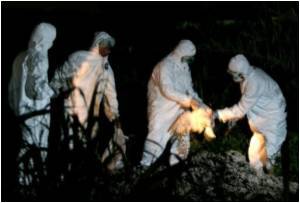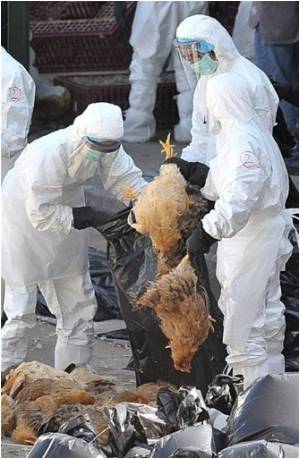
It is hoped the CSIRO super-chickens will breed disease-resistant offspring, creating a line of poultry which is immune to the deadly flu.
Former CSIRO AAHL director, Martyn Jeggo, who has recently retired and taken up a part-time post as chief of the Geelong Centre for Emerging Infectious Diseases, said that the global implications of the project could not be overstated.
"Right now, is the first time we have ever produced a resistant animal to a major disease like this," Dr Jeggo said.
"If we can do it for one, why the hell can't we do it for every other disease? This is a proof-of-concept project which is massive, massive, massive," he said.
Source-ANI









